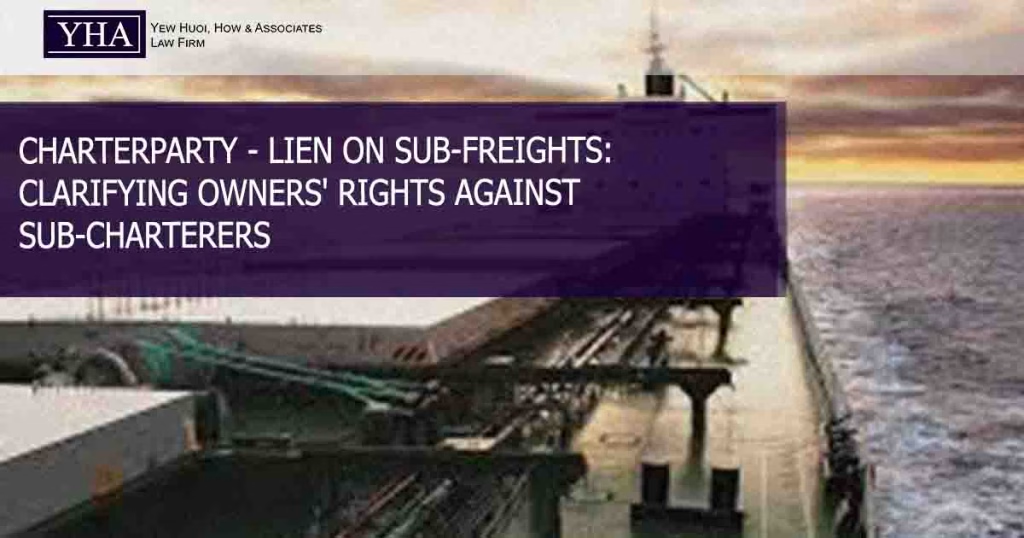1. Summary and Facts:
In Marchand Navigation Co v Olam Global Agri Pte Ltd and Anor [2025] 1 Lloyd’s Rep 92, Marchand Navigation Co, the disponent owner of Maria Theo 1, chartered the vessel to Sinco Shipping Pte Ltd under a New York Produce Exchange (“NYPE”) 1946 time charterparty. Sinco sub-chartered the vessel to Olam Global Agri Pte Ltd under a voyage charterparty, where demurrage of US$190,112 was incurred.
Marchand had paid US$406,401.47 for bunkers on Sinco’s behalf, fearing vessel arrest, and sought to enforce a lien on sub-freights under Clause 18 of the time charterparty to recover this sum. Olam, the sub-charterer, acknowledged the outstanding demurrage but was unsure whether to pay Marchand or Sinco. Sinco objected to the lien, citing an arbitration clause in the time charterparty.
2. Legal issues:
i. Whether Marchand’s payment of bunkers for Sinco was an “amount due under the charter”, allowing the lien on sub-freights to be exercised.
ii. Whether Sinco’s dispute over the bunker payment required arbitration, thereby preventing Marchand from enforcing the lien against Olam.
iii. Whether the presence of an arbitration clause between Marchand and Sinco affected Olam’s obligation as a sub-charterer, given that Olam was not a party to the time charterparty?
3. Court Findings:
• The court held that Clause 18 of the NYPE 1946 charterparty created a valid lien on sub-freights, which functioned like a floating charge and could extend to Marchand’s bunker payment claim.
• The phrase “any amounts due under this charter” was broad enough to include the bunker costs since Sinco was contractually responsible for fuel under the charterparty.
• The arbitration clause did not prevent Marchand from enforcing its lien against Olam, as Olam was not bound by the arbitration agreement between Marchand and Sinco.
• Olam was entitled to discharge its debt to Sinco by paying Marchand, since Marchand had properly exercised the lien.
4. Practical Implications:
• Owners can exercise a lien on sub-freights to recover charterers’ unpaid obligations, even if the dispute between owner and charterer is subject to arbitration.
• Sub-charterers must comply with lien notices if issued validly, as paying the wrong party may expose them to double liability.
• Charterers disputing a lien must act promptly and initiate arbitration, rather than rely on an arbitration clause to block payment.

